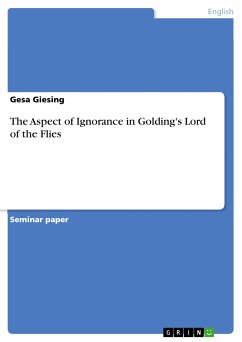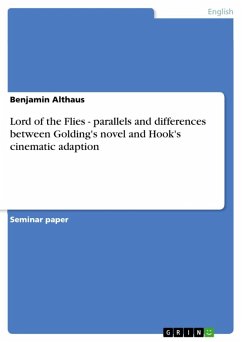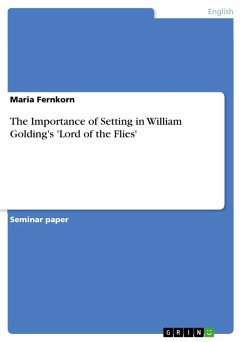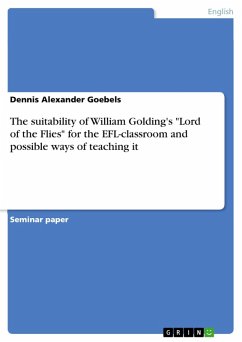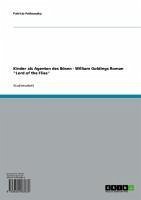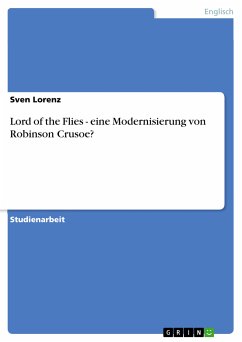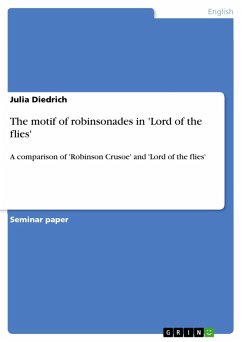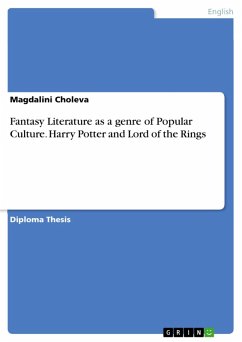Seminar paper from the year 1998 in the subject English Language and Literature Studies - Literature, grade: 1,0 (A), University of Leipzig (Institute for Anglistics), course: Literature from a Child's Perspective, language: English, abstract: The Author's Life and Work Born in 1911 in St. Columb Minor, Cornwall, William Gerald Golding spent his childhood in an area of historical wealth. In all his life, he would never leave South England for a longer period of time. Golding attended the Marlborough Grammar School in Wiltshire, where his father was teaching. For his son, Alec Golding embodied rationality and knowledge. Even as a child William Golding did a lot of reading. Some of his favourites were Tarzan of the Apes (E. R. Burroughs), Coral Island (R. M. Ballantyne) and adventure stories by Jules Verne. These books portray man as basically good and fighting the evils brought upon by society. At the age of twelve, Golding decided to become a writer. He made early, ambitious attempts at writing. So he planned a twelve-volume work on trade unions of which not more than the first sentence ever was completed. Initially, his studies at college weren't promising, either. As his parents had intended him to make a career as a microscopist, he began reading sciences at the Brasenose College in Oxford in 1930. But soon he felt that these rational subjects were not what he desired for and that "a career as a writer was inevitable" (Contemporary Writers 1). Hence he changed to literature and graduated from Oxford as a Bachelor of Arts. Neither did his Poems, published in 1934, nor the four years he spent acting and writing in London bring him satisfaction and success. After getting married in 1939, he took up teaching at a boys' school in order to earn enough money for a living. Yet, again, he didn't feel satisfied, but considered teaching a chore. In 1940 he joined the Royal Navy and took part in antisubmarine and antiaircraft operations. As a naval officer he was involved in D-Day. This six years of military service changed Golding's concept of man's nature. The atrocities of war he had witnessed contradicted his belief in man's perfectibility and in man's basic innocence. In his essay 'Fable' he states that "anyone who moved through these years without understanding that man produces evil as a bee produces honey, must have been blind or sick in the head", a sentence which has been cited by all his critics (e.g. McCarron 1-2) and which has branded Golding a pessimist. Accepting this term first, Golding had a hard time getting rid of it again.
Dieser Download kann aus rechtlichen Gründen nur mit Rechnungsadresse in A, B, BG, CY, CZ, D, DK, EW, E, FIN, F, GR, HR, H, IRL, I, LT, L, LR, M, NL, PL, P, R, S, SLO, SK ausgeliefert werden.

